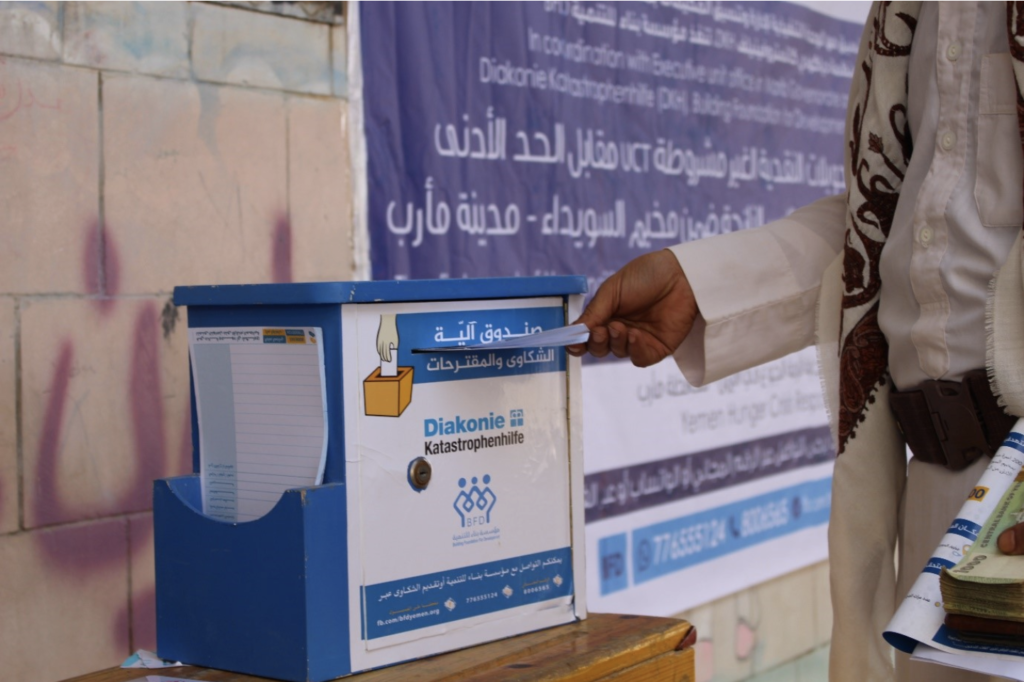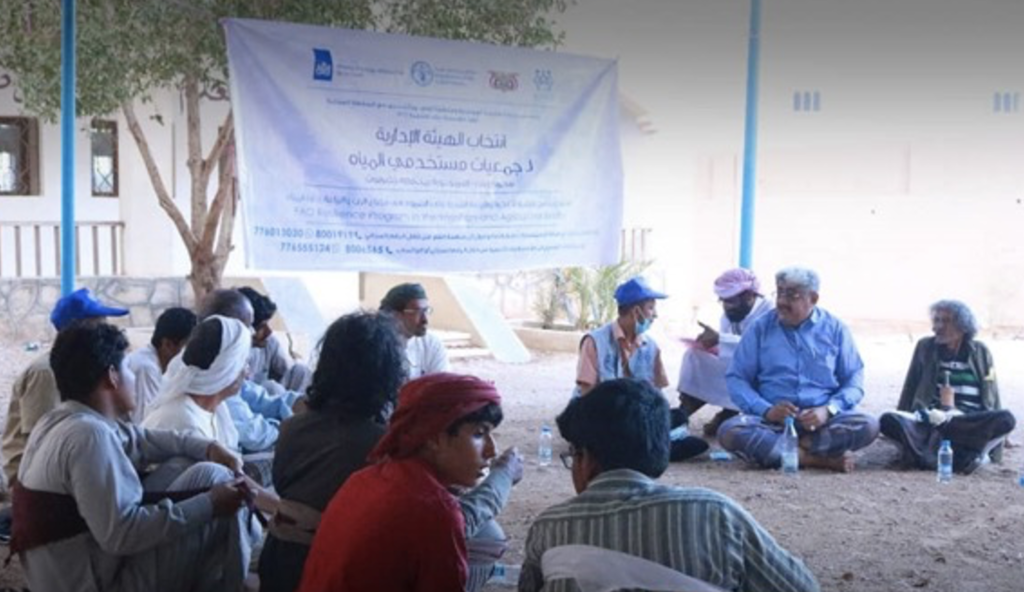Building Foundation for Development Yemen’s CHS Verification journey: elevating accountability and collaboration
CHS Alliance member Building Foundation For Development (BFD) recently embarked on a transformative CHS journey – undertaking CHS self-assessment and then achieving CHS certification with HQAI, all within just two years. A not for profit, non-governmental, Yemeni and community-based development and humanitarian organisation, these achievements have enabled BFD to elevate their operations, enhance trust with communities and foster greater cross-sector collaboration.
In summary, what impact has verifying against the CHS made to your work?
CHS verification is resulting in better outcomes for the people and communities we help every day in Yemen. The country’s humanitarian crisis is said to be one of the worst in the world, due to widespread famine, disease and attacks on civilians. We face so many challenges to provide basic support; yet still we strive to live out the essence of humanitarianism – to always respect the dignity of crisis-affected people.
Can you tell us about BFD’s CHS verification journey from Self-Assessment to Certification?
After learning about CHS from a donor, BFD wanted to use verification to increase our learning, collaboration and better serve the people in Yemen. We undertook a CHS Self-Assessment in 2021 to enhance the accountability and quality of our operations. Being a CHS Alliance member greatly helped us to make the most of the process and connect us with other national organisations going through the same improvements.
Our CHS Self-Assessment results identified areas where we need to improve, the main weakness was community involvement. Based on these findings we implemented measures to ensure that affected communities have a voice in decision-making processes. We established robust feedback and complaint channels and increased ways for people to steer our projects.

Complaints & suggestions box for the Hunger Crisis Response project in Marib, Yemen. Credit Building Foundation for Development
The CHS Self-Assessment also highlighted the need for stronger partnerships and collaboration with other organisations and stakeholders, particularly for learning. BFD proactively worked towards building and maintaining effective partnerships, leading to improved coordination, resource-sharing, and better outcomes for the communities it serves. This collaborative approach has been positively acknowledged by partners and community members.
After making these changes and seeing the impact they had, BFD decided to move to CHS Certification – to see if we met the CHS as judged by external specialists. Security risks meant the Humanitarian Quality Assurance Initiative (HQAI) auditors couldn’t visit Yemen for the all-important observational visits and community consultations, so they hired and trained local consultants. This meant that communities could still speak freely in informal ways with objective, external assessors. It was also a great way to build up local capacity in the CHS, potentially lowering costs for national and local organisations undergoing external verification in the future.
Achieving CHS certification, BFD saw an increase in our scores compared to the CHS Self-Assessment due to all the improvements we made. While we still have work to do on many areas that can be improved, by being part of the regular monitoring of the CHS Certification scheme, and as a CHS Alliance member, we know that we’ll keep going.
What specific improvements have you seen?
Since measuring our work against the CHS and making improvements where needed, we now provide more accessible and responsive ways for community members to share feedback and file complaints. New channels include oral feedback collection, audio recordings, pictorial representations and other formats that are more accessible for those who cannot read or write.
As a result of opening, we have seen a significant increase in the number of complaints, which we celebrate as a sign that the people we help know how to give us feedback and trust that they can tell us what they think. For example, in one project after we started proactively seeking feedback we received 780 complaints and inquiries. We then change how we work in response to what we hear. By actively seeking and acting on this community input we have witnessed a positive change in our community satisfaction results. Communities tell us they now feel more valued and empowered, leading to a stronger sense of ownership of our humanitarian work and better outcomes in helping people rebuild their lives.

BDF staff discuss improving irrigation water management in Hadramout with the directors of the water users’ association. Credit Building Foundation for Development
Being verified against the CHS also publicly validates our commitment to upholding internally recognised standards of humanitarian practice. Being able to show that we are working hard to continually meet this global mark increases the credibility and trust we get from donors, partners and most importantly – the people we serve. We find that donors often seek out CHS verified organisations to ensure their funding aligns with recognised quality standards and accountability frameworks.
We also feel that by being verified, our reputation and influence in the humanitarian sector here in Yemen, and in the region is growing. This helps to increase recognition of our expertise and give us a stronger voice in shaping policies and practices.
BFD’s CHS verification attracts like-minded partners who value the importance of adhering to humanitarian standards and keeping a laser focus on how crisis-affected people are treated. Being part of this community helps us to create strategic partnerships with groups that share similar values and goals. We have forged strategic partnerships with organisations such as CARE Yemen, IRC, and DKH. By joining forces, we gained access to a wealth of expertise, resources and networks. As a group we are also better at collaborating for more collective efforts, everage our combined strengths. This ultimately results in more effective humanitarian assistance, despite the constant funding and security constraints here in Yemen
Final thoughts
Looking to the future, CHS verification is not a one-time achievement but a commitment to ongoing improvement. It encourages organisations like ours to continuously assess and enhance their policies, processes and practices. BFD’s CHS Certification is serving as a catalyst for creating a culture of continuous learning and improvement, driving us to consistently raise the bar and better deliver for the people of Yemen.
CHS Alliance recognises there are many types of organisations at different stages of their journey to meet their CHS Commitments. That is why the CHS Alliance Verification Scheme offers three different approaches to verifying against the CHS.
These are:
- Self-Assessment. Self-assessment is a learning exercise. It helps organisations understand their ability and performance against the CHS and builds an improvement plan to make the services they deliver work better for people affected by crisis.
- Independent Verification. Provides organisations with an external, independent assessment of ability and improvement against the CHS.
- Certification. Offers organisations a forensic diagnostic of the degree to which they have applied the CHS.
Independent Verification and Certification are conducted by an accredited, third-party auditor – currently this service is offered by HQAI.
Learn more about how verifying against the CHS can transform your organisation for the people you support.

